
Priority Action Area (PAA) 4 of the MHPSS roadmap aims to demonstrate the impact of MHPSS interventions. Strengthening evidence and developing quality interventions will improve the efficiency and effectiveness of MHPSS with a view to promoting good practice and reaching more people with appropriate mental health and psychosocial support.
Evidence-building is a critical component embedded in the Movement program management framework. It acts as a tenet, guiding decision-making from the program’s initial planning stages to the eventual reporting and dissemination of results. It serves as a compass, ensuring accountability and nurturing a culture of continuous improvement within the program.
In reality, there is considerable variation in the extent to which the effects of MHPSS services are evaluated systematically in the Movement, especially where MHPSS activities or approaches are integrated into programs in other sectors. MHPSS Monitoring and Evaluation activities primarily focus on measuring outputs (such as the number of people who accessed a service) rather than outcomes (changes in mental health and psychosocial well-being).
The different analyses that were carried out or commissioned by the PAA 4 working group revealed various obstacles to effective evidence-building for MHPSS, including resource limitations, structural constraints within National Societies, challenges with MHPSS practices, and a lack of understanding of M&E principles.
With the various activities as part of the MHPSS Roadmap 2020-2024, the PAA4 working group intended to strengthen the Movement’s expertise in evidence-building and learning related to MHPSS interventions with capacity-building measures and the development of practice-orientated resources.
The PAA 4 working group commissioned a consultancy project realized by Rebecca Horn to map the current MHPSS evidence-building activities taking place within the Movement, and to identify the factors that facilitate and hinder such evidence-building activities, particularly within National Societies. This is to suggest strategies to promote MHPSS evidence-building and develop a Toolkit containing a repository of resources and materials to support National Societies in their efforts to strengthen evidence around their MHPSS.

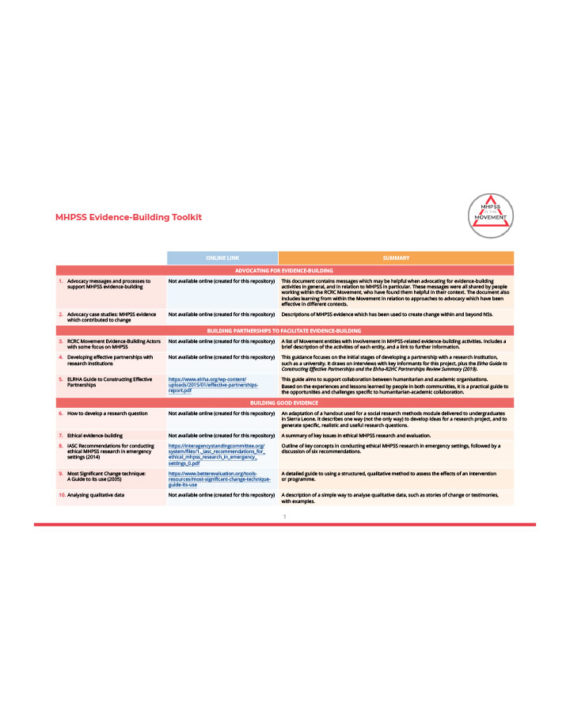
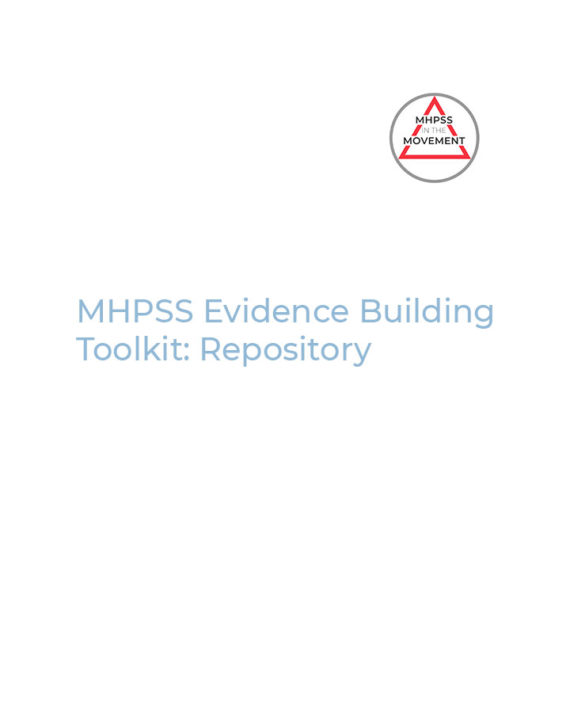
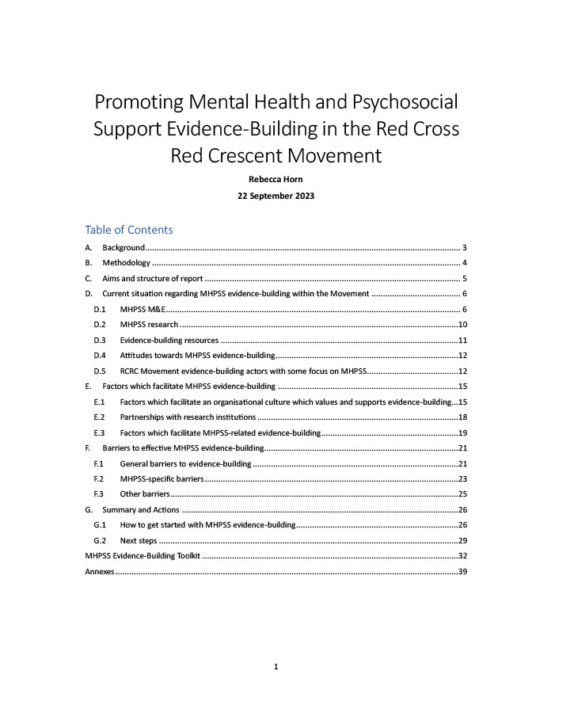
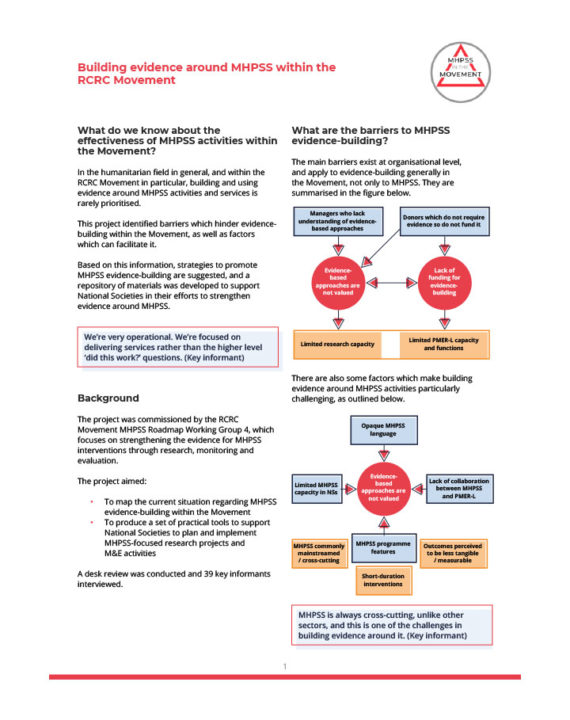
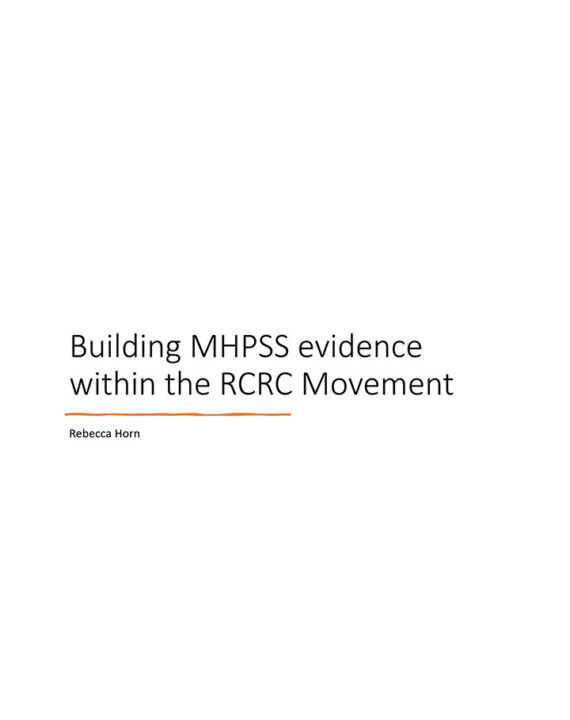
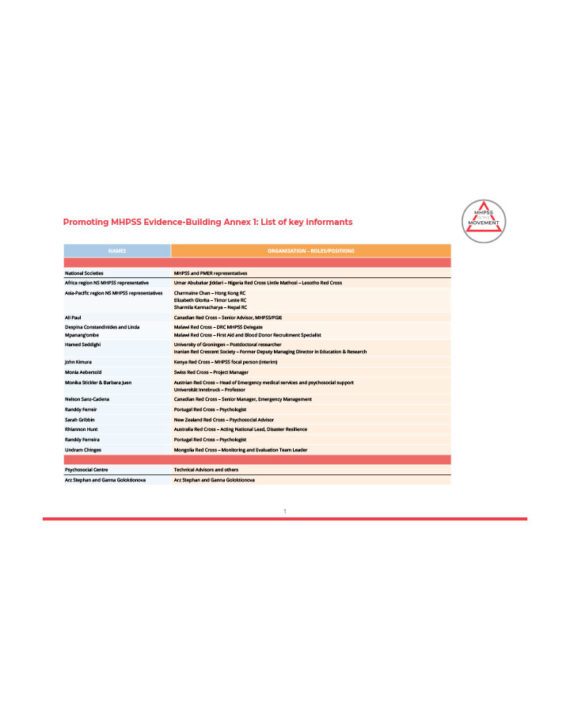
There is an array of tools and approaches one can adopt to build evidence. Choosing which one depends on your objectives and what you aim to do with the knowledge. The working group presented on Assessments, Monitoring, Evaluation, and Research. These are common ways one can gather evidence and knowledge on MHPSS. Each of these topics includes a webinar and lessons learnt from the experiences of National Societies as well as other resources that can support how to conduct an assessment, monitoring and evaluation, and research.
Please note, that all the webinars exist in Arabic, French and Spanish. View the resources for other languages.
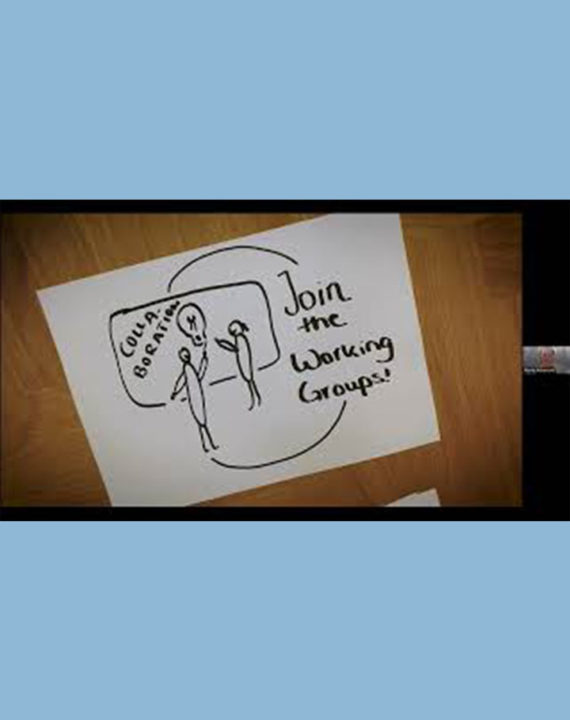

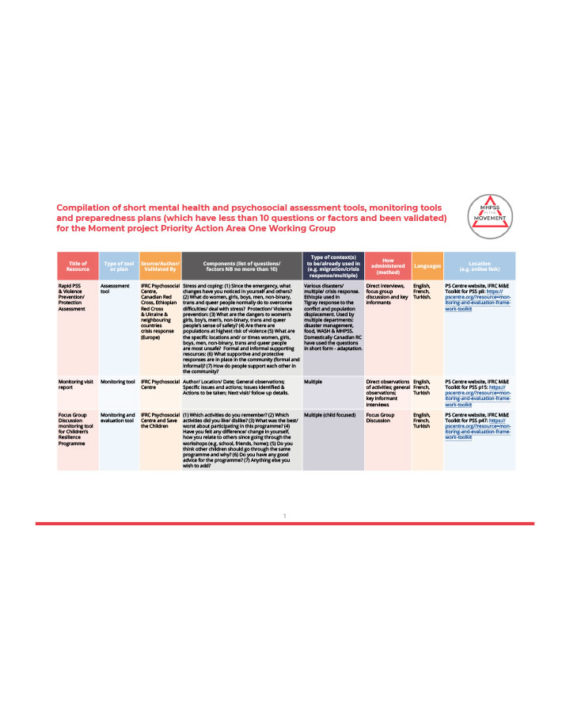
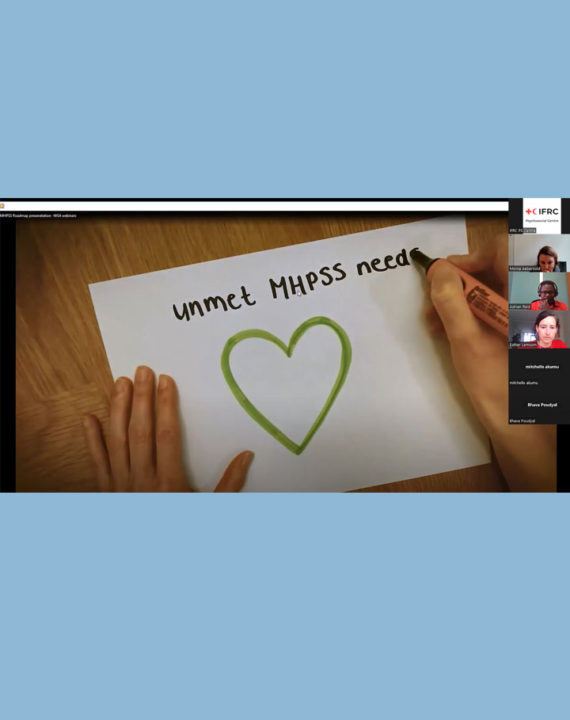

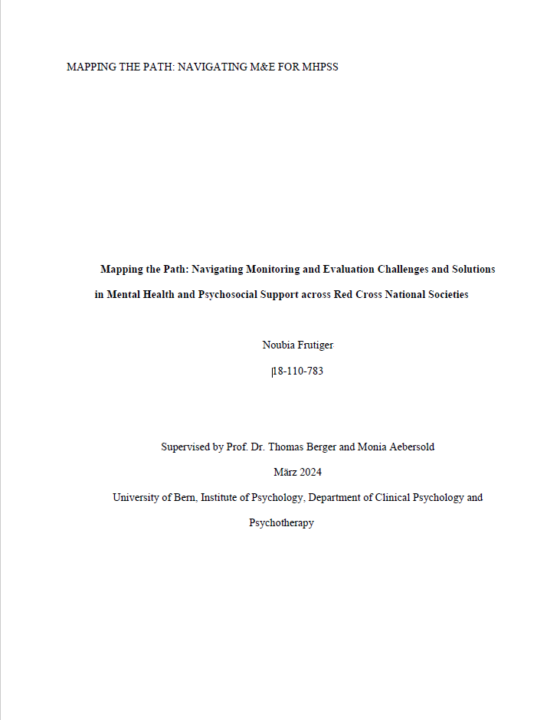
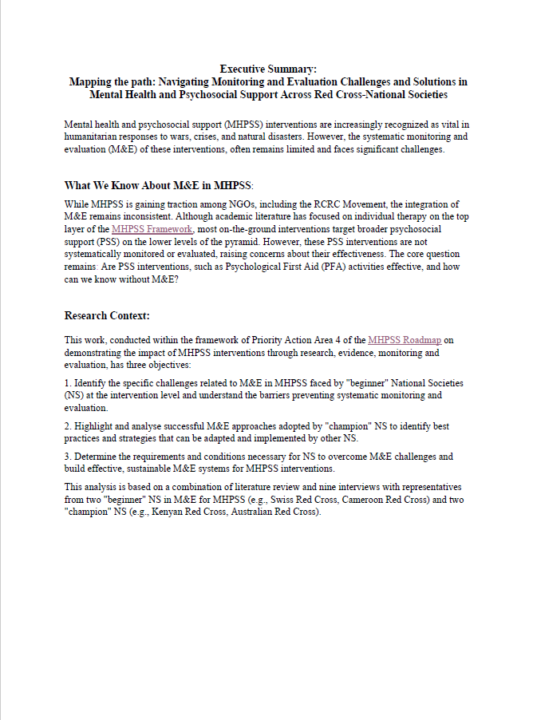

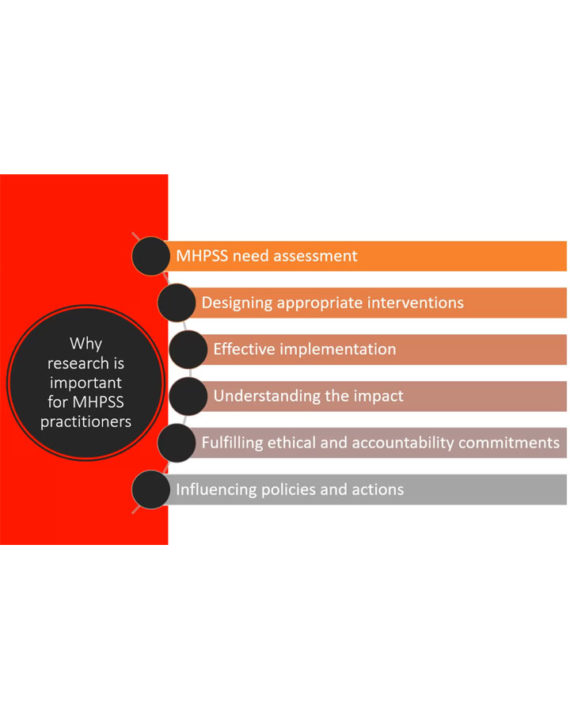
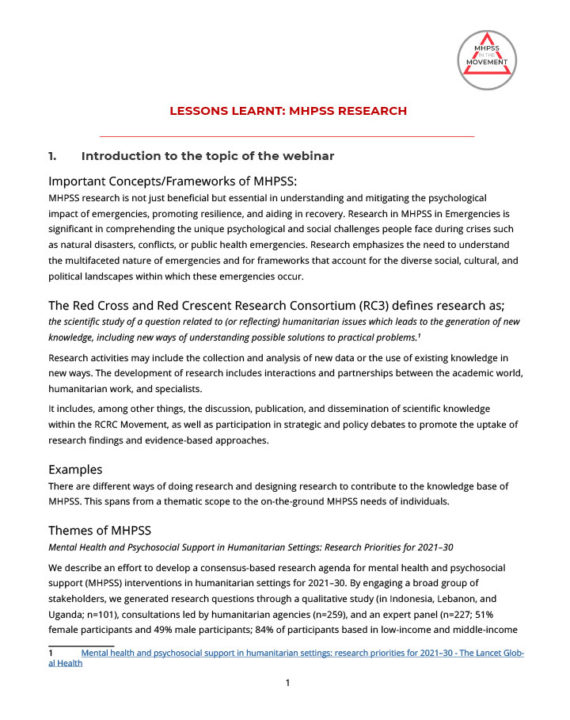
Each context is unique and for research, assessments, and evaluations to accurately reflect the reality of people´s lived experiences, evidence-building techniques and approaches need to take the cultural nuances that exist.
Please note, that all the webinars exist in Arabic, French and Spanish. View the resources for other languages.
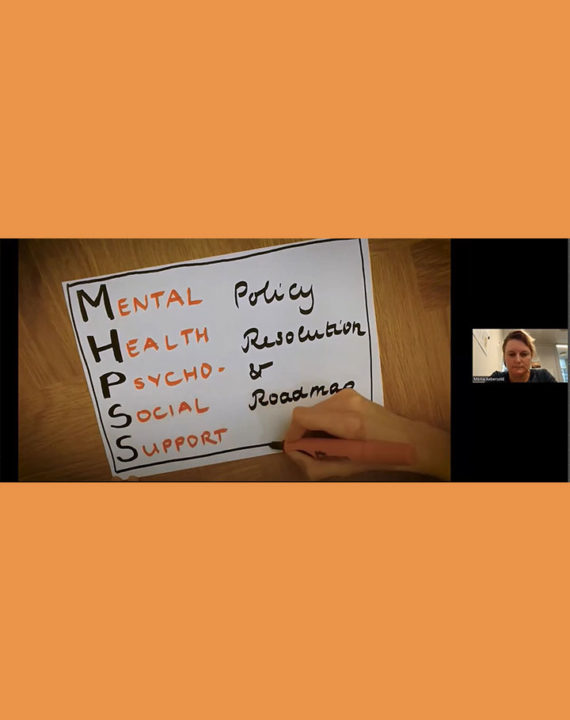

There is an enormous gap in human resources for mental health and psychosocial support at a global level. The ramifications of this gap are magnified in situations of armed conflict, natural disasters, and other emergencies, where needs intensify and health systems are overwhelmed. Accordingly, there is a need for innovative and promising approaches that can reach more people affected in the most cost-effective way possible. In such contexts in which resources are scarce, access is limited, and gaps in service provision are high, digital psychological and psychosocial support services – thanks to the use of information and communication technology (ICT) and the many technologies related to the Internet, open up ways of connecting with more people in need. A sub-group of the PAA4 working group, led by the Swiss Red Cross, has pursued the objectives of raising awareness for evidence-based digital MHPSS, assessing the structural needs for the scalable integration of digital MHPSS within the RCRC Movement, and of providing practice-oriented, accessible guidelines for the effective and efficient implementation of digital MHPSS initiatives at a local and global level.
For more information, go to Digital Mental Health and Psychosocial Support (MHPSS).
Ensuring effective mental health and psychosocial support is crucial following exposure to a potentially traumatic event and can have long-term consequences for the people affected. Psychological first aid (PFA) has become a widespread intervention of choice following exposure to conflict or disaster; Psychological First Aid is a direct response and widespread and low-threshold intervention to help people in distress with the intention to prevent and alleviate human suffering. However, its impact is nearly unknown. The PPA4 Working group aims to support evidence-building with PFA services by providing helpful guidance, resources, and articles.
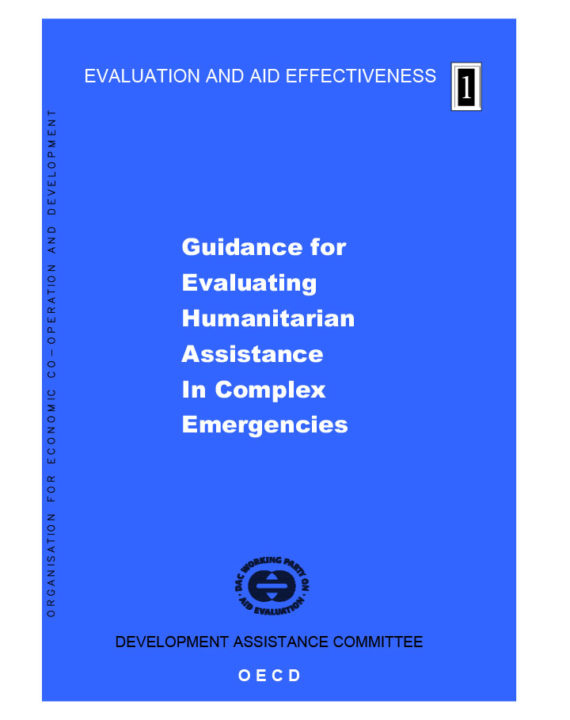
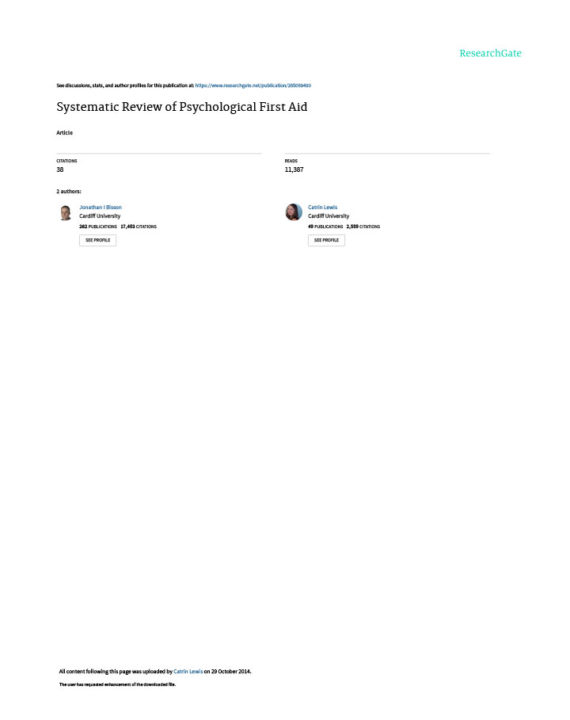
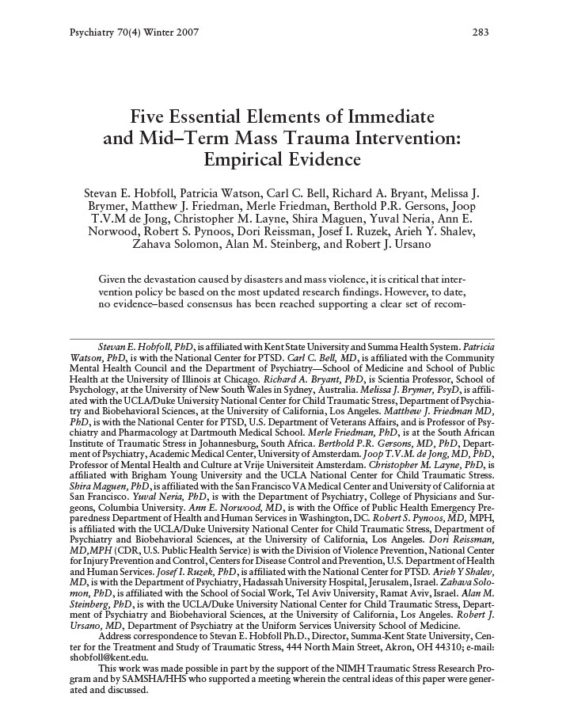
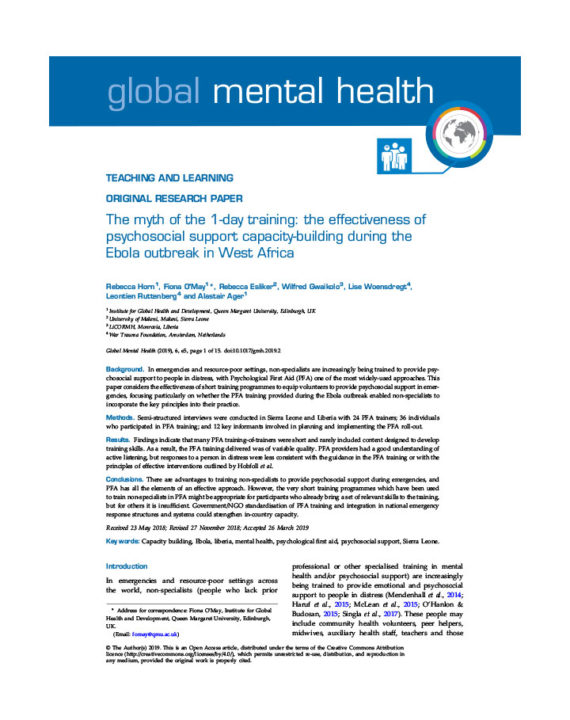
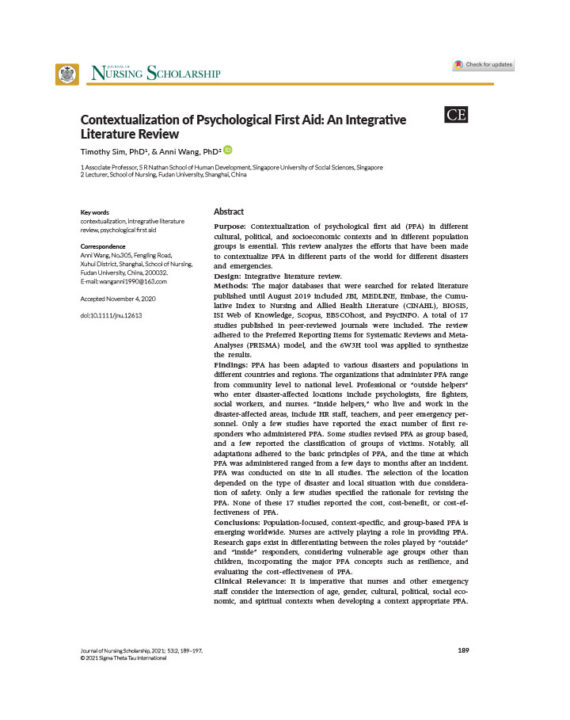
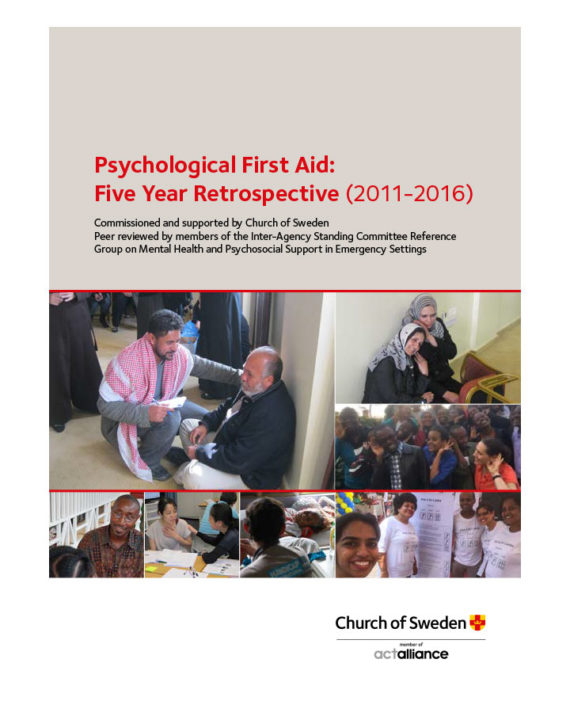
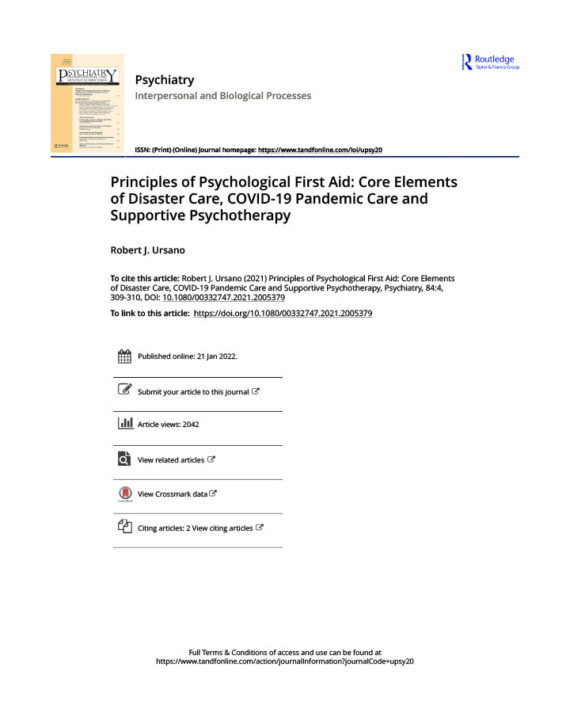
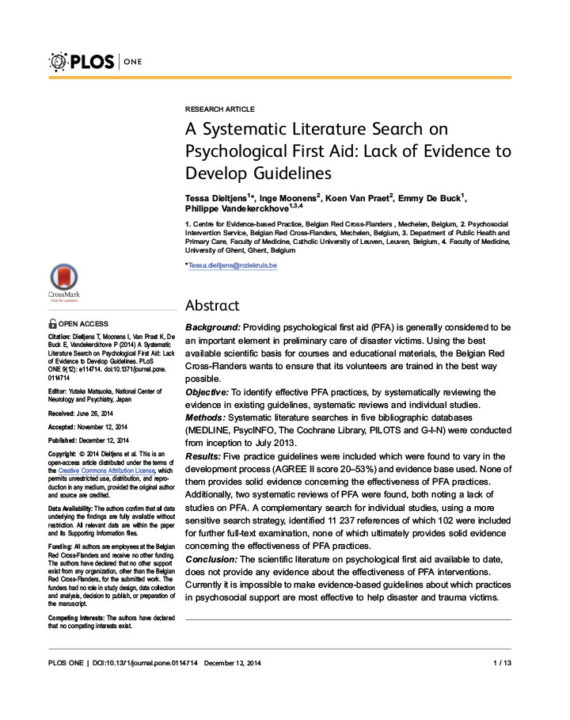
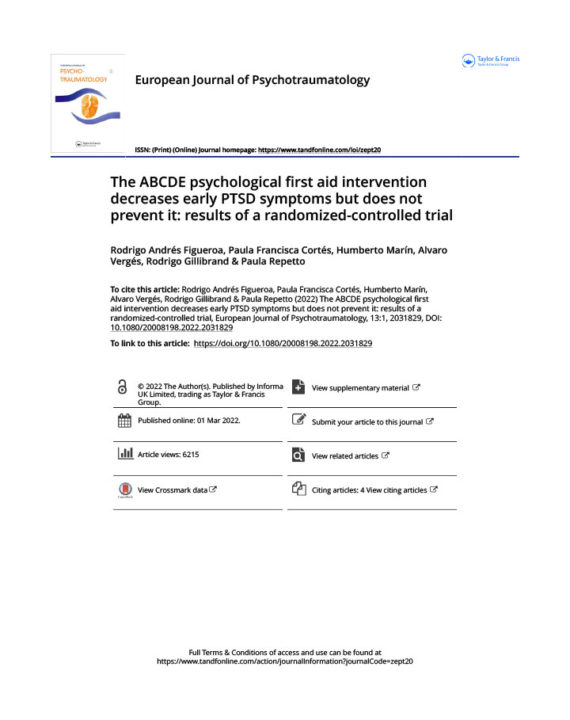
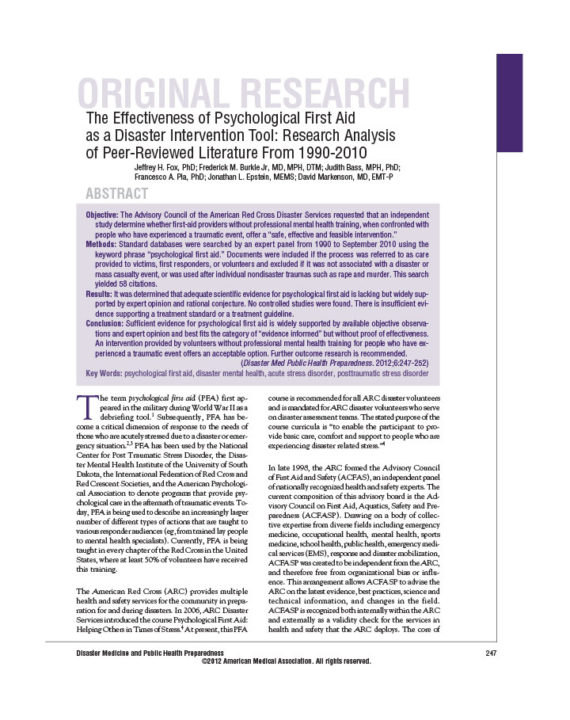
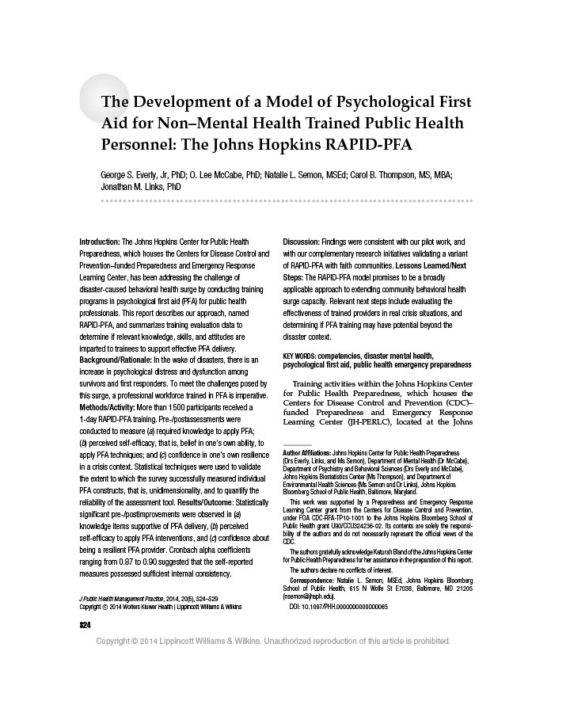
The Inter-Agency Standing Committee (IASC) Reference Group, co-chaired by WHO and IFRC, manages an MHPSS M&E Helpdesk to provide timely, free, and practical support, with each response acknowledged within 24 hours during weekdays to all MHPSS actors across humanitarian, preparedness and development contexts globally. It also supports referrals to global and regional experts, technical working groups, or a Community of Practice for M&E and links to M&E resources and learning opportunities. To get support either fill out the contact form or send an email to: mhpssmande@gmail.com.
Stay connected with psychosocial support and the latest news and events
The Red Cross Red Crescent (RCRC) Movement MHPSS Hub (MHPSS Hub) is dedicated to advancing mental health and psychosocial support (MHPSS) throughout the RCRC Movement. Hosted by the Danish Red Cross, the Hub collaborates with National Societies, the International Committee of the Red Cross (ICRC), the International Federation of Red Cross and Red Crescent Societies (IFRC), as well as international humanitarian organizations and academic institutions. By uniting expertise from across the Movement and beyond, we help build stronger, more resilient communities better equipped to cope with crises and recover from adversity.
Red Cross Red Crescent Movement MHPSS Hub
Hejrevej 30, st.
2400 Copenhagen NV
Denmark
Site language:
